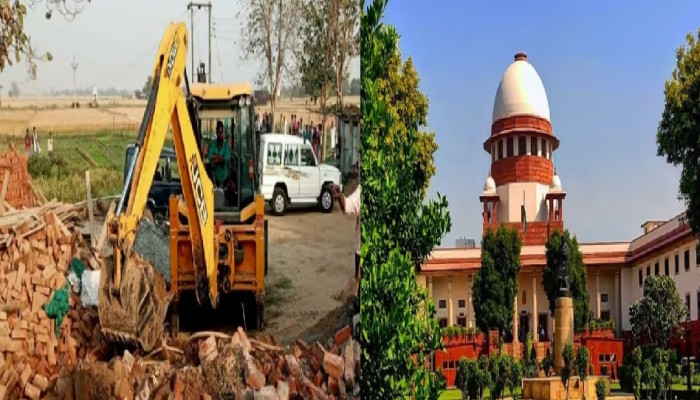Public safety first, temples and dargahs on roads must go: Supreme court
- In Reports
- 04:58 PM, Oct 01, 2024
- Myind Staff
The Supreme Court ruled on Tuesday that any religious building that is encroaching on a road or railway track, regardless of whether it is a temple or dargah, must be demolished in order to prioritise public safety. The Apex court made the declaration when it was hearing petitions contesting the use of bulldozers against criminal suspects. Additionally, it prolonged the temporary injunction that prohibits demolitions nationwide without first obtaining court permission. The Apex court also extended its interim order that prohibits demolitions nationwide without first obtaining court permission.
India is a secular country, according to the two-judge bench, and its decisions regarding anti-encroachment campaigns and bulldozer actions would be applicable to everyone, regardless of religion. “We are a secular country and our direction will be for all, irrespective of religion or community. If there is any religious structure in the middle of the road, be it gurudwara or dargah or temple, it cannot obstruct the public,” said the court.
Attorney General Tushar Mehta, who was representing the governments of Gujarat, Madhya Pradesh, and Uttar Pradesh, was questioned by the court during the proceedings regarding whether or not being accused of a crime could excuse bulldozer action. In response, Mehta said, “No, absolutely not. Even for heinous crimes like rape or terrorism. Like my lord said, it cannot also be that the notice issued is stuck one day before; it has to be in advance.”
The Supreme Court last month banned demolitions nationwide until October 1st, with the exception of situations involving encroachments on public roads, walkways, railway tracks, or water bodies. The SC is currently considering a number of pleas that claim the homes of criminal suspects are being demolished in various states.
The Supreme Court had noted during its September 17 hearing on these pleas that the "ethos" of the Constitution was violated by even a single instance of illegal demolition. "Till the next date of hearing, we direct that there shall be no demolition anywhere across the country, without seeking leave of this court," the bench had said. "We further clarify that our order would not be applicable if there is an unauthorised structure in any public place such as a road, street, footpath, abutting railway line or any river body or water body and also, to cases where there is an order for demolition made by a court of law," the apex court had said.
During its September 2 hearing on the petitions, the Supreme Court questioned how someone's house could be destroyed simply because they were being accused of a crime. The Jamiat Ulama-i-Hind and other parties filed petitions with the court asking for orders to be given to different states so that the properties of people accused of rioting and violence would not be demolished in the future.
A Muslim organisation had filed a petition in the Supreme Court, requesting that the Uttar Pradesh government be directed to stop demolishing properties of people accused of violence in the state. They argued that no demolitions should happen without following the proper legal process and giving prior notice.







Comments